|
Books Should Be Free Loyal Books Free Public Domain Audiobooks & eBook Downloads |
|
|
Books Should Be Free Loyal Books Free Public Domain Audiobooks & eBook Downloads |
|
Top Authors |
|---|
|
Book type:
Sort by:
|
By: George Santayana (1863-1952) | |
|---|---|
 Three Philosophical Poets Lucretius, Dante, and Goethe
Three Philosophical Poets Lucretius, Dante, and Goethe
| |
 Character and Opinion in the United States
Character and Opinion in the United States
| |
By: George Sand (1804-1876) | |
|---|---|
 The Devil's Pool
The Devil's Pool
George Sand (the pen name of Amantine-Lucile-Aurore Dupin 1804-1876) is famous for flaunting the conventions of behavour expected of women of her standing in France at the time and for her numerous romantic liaisons including her long standing affair with Frédéric Chopin. The Devil’s Pool (published in 1846 as La Mare au Diable) is one of several short pastoral novels drawn from her childhood experiences in the rural French region of Berri. It tells the story of a young widower, Germain, who, at the insistence of his father-in-law, sets out to remarry so that he will have someone to help raise his three young children. Summary written by the reader. | |
 The Devil's Pool
The Devil's Pool
| |
 The George Sand-Gustave Flaubert Letters
The George Sand-Gustave Flaubert Letters
| |
By: Jacob & Wilhelm Grimm (1785-1863; 1786-1859) | |
|---|---|
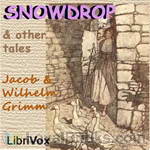 Snowdrop and Other Tales
Snowdrop and Other Tales
Many of these tales were published in English in 1909, the Brothers Grimm tales in this book were published separately in 1920 with illustrations by Arthur Rackham (1867-1939). | |
By: Anna Maynard Barbour (d. 1941) | |
|---|---|
 That Mainwaring Affair
That Mainwaring Affair
As wealthy financier, Hugh Mainwaring dictates his last will and testament to his private secretary, it would be impossible for him to imagine the shocking chain of events that he is about to set into motion. This best-selling mystery novel was first published in 1901 and remains an entertaining mix of detective work, courtroom drama and family intrigue. | |
 At the Time Appointed
At the Time Appointed
"Those who remember that excellent detective story, That Mainwaring Affair will expect to find plenty of mystery and exciting incidents in A. Maynard Barbour's latest novel, called At the Time Appointed, and they will realize their expectations.The author has a certain way of forecasting events and making people utter prophetic words, all bound to find their fulfillment somewhere before the last chapter is ended, that is eminently characteristic of one who delights in the knitting and raveling of the intricate plots which are a prime necessity in a detective story... | |
By: Olaudah Equiano (1745-1797) | |
|---|---|
 The Interesting Narrative of the Life of Olaudah Equiano, Or Gustavus Vassa, The African
The Interesting Narrative of the Life of Olaudah Equiano, Or Gustavus Vassa, The African
The Interesting Narrative of the Life of Olaudah Equiano, written in 1789, is the autobiography of Olaudah Equiano. It discusses his time spent in slavery, serving primarily on galleys, documents his attempts at becoming an independent man through his study of the Bible, and his eventual success in gaining his own freedom and in business thereafter. The book contains an interesting discussion of slavery in West Africa and illustrates how the experience differs from the dehumanising slavery of the Americas... | |
By: Ethel Sybil Turner | |
|---|---|
 Seven Little Australians
Seven Little Australians
This is the story of seven incorrigible children living near Sydney in the 1880’s with their military-man father, and a stepmother who is scarcely older than the oldest child of the family. A favourite amongst generations of children for over a century, this story tells of the cheeky exploits of Meg, Pip, Judy, Bunty, Nell, Baby, and The General (who is the real baby of the family), as well as providing a fascinating insight into Australian family life in a bygone era. | |
 In the Mist of the Mountains
In the Mist of the Mountains
| |
By: Henry Fielding (1707-1754) | |
|---|---|
 The History of Tom Jones, A Foundling
The History of Tom Jones, A Foundling
Tom Jones is considered one of the first prose works describable as a novel. The novel is divided into 18 smaller books. Tom Jones is a foundling discovered on the property of a very kind, wealthy landowner, Squire Allworthy. Tom grows into a vigorous and lusty, yet honest and kind-hearted, youth. He develops affection for his neighbor’s daughter, Sophia Western. On one hand, their love reflects the romantic comedy genre popular in 18th-century Britain. However, Tom’s status as a bastard causes Sophia’s father and Allworthy to oppose their love; this criticism of class friction in society acted as a biting social commentary... | |
 Joseph Andrews
Joseph Andrews
Joseph Andrews ... was the first published full-length novel of the English author and magistrate Henry Fielding, and indeed among the first novels in the English language. Published in 1742 and defined by Fielding as a ‘comic romance,’ it is the story of a good-natured footman's adventures on the road home from London with his friend and mentor, the absent-minded parson Abraham Adams. | |
 Journey from this World to the Next
Journey from this World to the Next
The narrator dies in the first sentence. Through relating his travels in the afterlife, Henry Fielding, author of Tom Jones and Joseph Andrews, gently satirizes life here on earth. | |
 The History of the Life of the Late Mr. Jonathan Wild the Great
The History of the Life of the Late Mr. Jonathan Wild the Great
This novel is sometimes thought of as [Fielding's] first because he almost certainly began composing it before he wrote Shamela and Joseph Andrews. It is a satire of Walpole that draws a parallel between Walpole and Jonathan Wild, the infamous gang leader and highwayman. He implicitly compares the Whig party in Parliament with a gang of thieves being run by Walpole, whose constant desire to be a “Great Man” (a common epithet for Walpole) should culminate only in the antithesis of greatness: being hanged. | |
 Journal of a Voyage to Lisbon
Journal of a Voyage to Lisbon
Sailing voyage from England to Portugal in the mid Eighteenth Century, by one of the premier humorists, satirists, novelists and playwrights of his age. It was to be his last work, as his failing health proved unable to persevere much longer after the voyage. | |
 An Apology for the Life of Mrs. Shamela Andrews
An Apology for the Life of Mrs. Shamela Andrews
An Apology for the Life of Mrs. Shamela Andrews, or simply Shamela, as it is more commonly known, is a satirical novel written by Henry Fielding and first published in April 1741 under the name of Mr. Conny Keyber. Fielding never owned to writing the work, but it is widely considered to be his. It is a direct attack on the then-popular novel Pamela (November 1740) by Fielding's contemporary and rival Samuel Richardson and is composed, like Pamela, in epistolary form. Shamela is written as a shocking revelation of the true events which took place in the life of Pamela Andrews, the main heroine of Pamela... | |
 Amelia (Vol. 1)
Amelia (Vol. 1)
This is the first volume of a three volume novel. In this novel, Amelia marries William Booth against her mother's desires, and the two must move to London. Fielding explores the issues of married life such as infidelity and whether women's intelligence is equal to men's. | |
 The Works of Henry Fielding Edited by George Saintsbury in 12 Volumes $p Volume 12
The Works of Henry Fielding Edited by George Saintsbury in 12 Volumes $p Volume 12
| |
 The Lovers Assistant, or, New Art of Love
The Lovers Assistant, or, New Art of Love
| |
By: Elizabeth Prentiss (1818-1878) | |
|---|---|
 Stepping Heavenward
Stepping Heavenward
"How dreadfully old I am getting! Sixteen!" Thus begins the lifelong diary of young Katherine as she pours out her hopes, dreams, and spiritual journey on the pages of her dear, old journal. Whimsical and charming Katherine is engagingly candid about her character flaws and her desire to know God. As you listen to her share her heart through these journal entries, you will be amazed and delighted by the depth of her character and the womanly wisdom and godliness she develops over the years. From the agonies of being a teenager to the delicate balancing act between being a wife/mother/daughter/neighbor, it is easy to relate to Katherine's triumphs and trials whether you are 16 or 60... | |
By: Thomas de Quincey (1785-1859) | |
|---|---|
 Miscellaneous Essays
Miscellaneous Essays
The Hunter Thompson of the 19th Century, de Quincey is best known for his Confessions of an English Opium Eater (an activity shared with his hero, Samuel Coleridge, much to Wordsworth’s dismay). However, de Quincey’s literary genius is best captured in his essays, and, according to Wikipedia: His immediate influence extended to Edgar Allan Poe, Fitz Hugh Ludlow and Charles Baudelaire, but even major 20th century writers such as Jorge Luis Borges admired and claimed to be partly influenced by his work. | |
 Confessions of an English Opium-Eater
Confessions of an English Opium-Eater
“Thou hast the keys of Paradise, O just, subtle, and mighty Opium!” Though apparently presenting the reader with a collage of poignant memories, temporal digressions and random anecdotes, the Confessions is a work of immense sophistication and certainly one of the most impressive and influential of all autobiographies. The work is of great appeal to the contemporary reader, displaying a nervous (postmodern?) self-awareness, a spiralling obsession with the enigmas of its own composition and significance... | |
By: W. W. Jacobs (1863-1943) | |
|---|---|
 The Monkey's Paw
The Monkey's Paw
An eerie supernatural story, The Monkey's Paw follows the White family as they come to realize that nothing in life comes without a price or at the simple push of a button. First published in 1902, the short story powerfully suggests that one should not interfere with the course of nature, as cheating fate can result in unforeseen consequences that leave one with more than they bargained for. Set in England, the tale opens on a dark and stormy night inside Laburnam Villa, home to Mr. and Mrs... | |
By: Catharine Parr Traill (1802-1899) | |
|---|---|
 The Backwoods of Canada
The Backwoods of Canada
The writer is as earnest in recommending ladies who belong to the higher class of settlers to cultivate all the mental resources of a superior education, as she is to induce them to discard all irrational and artificial wants and mere useless pursuits. She would willingly direct their attention to the natural history and botany of this new country, in which they will find a never-failing source of amusement and instruction, at once enlightening and elevating the mind, and serving to fill up the void left by the absence of those lighter feminine accomplishments, the practice of which are necessarily superseded by imperative domestic duties... | |
By: Selma Lagerlöf (1858-1940) | |
|---|---|
 The Wonderful Adventures of Nils
The Wonderful Adventures of Nils
Selma Lagerlöf was born in Vaermland, Sweden, in 1858 and enjoyed a long and very successful career as a writer, receiving the Nobel-Price in Literature in 1909. She died in Vaermland in 1940. The Wonderful Adventures of Nils (Orig. Nils Holgerssons underbara resa genom Sverige) is a famous work of fiction by Selma Lagerlöf, published in two parts in 1906 and 1907. The background for publication was a commission from the National Teachers Association in 1902 to write a geography reader for the public schools... | |
 Invisible Links
Invisible Links
Selma Lagerlöf was born in Vaermland, Sweden, in 1858 and enjoyed a long and very successful career as a writer, receiving the Nobel-Price in Literature in 1909. She died in Vaermland in 1940. Invisible Links (Osynliga länkar) is a collection of short stories with an underlying theme about the links that influence and guide people’s actions and lives. It was first published in 1894 and the English translation in 1895. The stories are often set in Lagerlöf’s Vaermland, but they also depict legends and history of Sweden, and some have connections to other works by Lagerlöf. Invisible Links is a good introduction to the writings of Selma Lagerlöf. | |
 The Emperor of Portugallia
The Emperor of Portugallia
Selma Lagerlöf was born in Vaermland, Sweden, in 1858 and enjoyed a long and very successful career as a writer, receiving the Nobel-Price in Literature in 1909. She died in Vaermland in 1940. The Emperor of Portugallia was first Published 1914 in Sweden, and 1916 in English, translated by Velma Swanston Howard. The Story i set in Vaermland around 1860 or 1870. In the centre is Jan of Ruffluck Croft. He loves his daughter more than anything, but when she moves to Stockholm and never sends a word home about her doings, he sinks into a dream-world where she is a noble Empress of Portugallia... | |
 Jerusalem
Jerusalem
| |
By: A. Alpheus | |
|---|---|
 Complete Hypnotism, Mesmerism, Mind-Reading and Spiritualism
Complete Hypnotism, Mesmerism, Mind-Reading and Spiritualism
Written in 1903, just sixty years after the word ‘hypnotism’ was coined, this book explores the contemporary understanding of the nature, uses and dangers of the technique. Hypnotism has been practiced for many centuries, but it was in the mid-to-late nineteenth century that it became a particularly fashionable way to explore the human mind. Although understanding of the subject has evolved considerably over subsequent years, this book remains a fascinating insight into a technique once thought to be at the forefront of medical science. | |
By: Robert Burns (1759-1796) | |
|---|---|
 Poems and Songs of Robert Burns
Poems and Songs of Robert Burns
| |
 The Letters of Robert Burns
The Letters of Robert Burns
| |
 Tam O'Shanter
Tam O'Shanter
| |
By: Alexander Pope (1688-1744) | |
|---|---|
 An Essay on Man
An Essay on Man
Pope’s Essay on Man, a masterpiece of concise summary in itself, can fairly be summed up as an optimistic enquiry into mankind’s place in the vast Chain of Being. Each of the poem’s four Epistles takes a different perspective, presenting Man in relation to the universe, as individual, in society and, finally, tracing his prospects for achieving the goal of happiness. In choosing stately rhyming couplets to explore his theme, Pope sometimes becomes obscure through compressing his language overmuch... | |
 An Essay on Criticism
An Essay on Criticism
An Essay on Criticism was the first major poem written by the English writer Alexander Pope (1688-1744). However, despite the title, the poem is not as much an original analysis as it is a compilation of Pope’s various literary opinions. A reading of the poem makes it clear that he is addressing not so much the ingenuous reader as the intending writer. It is written in a type of rhyming verse called heroic couplets. | |
 The Rape of the Lock and Other Poems
The Rape of the Lock and Other Poems
| |
 The Works of Alexander Pope, Volume 1 New Edition
The Works of Alexander Pope, Volume 1 New Edition
| |
By: James Boswell (1740-1795) | |
|---|---|
 The Life of Samuel Johnson
The Life of Samuel Johnson
Boswell’s Life of Samuel Johnson is widely considered to be the greatest English-language biography ever written. It was revolutionary in its efforts to represent Johnson as he was, celebrating his flaws as well as his genius, and in Boswell’s decision to represent Johnson primarily by quoting his writings and relating personal anecdotes rather than relying on matters of public record. From the time of its publication till now, The Life of Johnson has been one of the most popular and influential books ever written. | |
 No Abolition of Slavery Or the Universal Empire of Love, A poem
No Abolition of Slavery Or the Universal Empire of Love, A poem
| |
 Boswell's Correspondence with the Honourable Andrew Erskine, and His Journal of a Tour to Corsica
Boswell's Correspondence with the Honourable Andrew Erskine, and His Journal of a Tour to Corsica
| |
By: Yacki Raizizun | |
|---|---|
 The Secret of Dreams
The Secret of Dreams
A guide to different kinds of dreams, their meanings, and how they influence our waking lives. | |
By: Amy Lowell (1874-1925) | |
|---|---|
 Dome of Many-Coloured Glass
Dome of Many-Coloured Glass
This is a collection of lyrical poems, sonnets and verses for children by Amy Lowell."For quaint pictorial exactitude and bizarrerie of color these poems remind one of Flemish masters and Dutch tulip gardens; again, they are fine and fantastic, like Venetian glass; and they are all curiously flooded with the moonlight of dreams. . . . Miss Lowell has a remarkable gift of what one might call the dramatic-decorative. Her decorative imagery is intensely dramatic, and her dramatic pictures are in themselves vivid and fantastic decorations." (Richard Le Gallienne, 'New York Times Book Review', 1916) | |
 Men, Women and Ghosts
Men, Women and Ghosts
This is a collection of long poems and short stories by Amy Lowell. | |
By: Sholem Aleichem (1859-1916) | |
|---|---|
 Jewish Children (Yudishe Kinder)
Jewish Children (Yudishe Kinder)
Although written from a child’s perspective, this is not a kids book but a series of funny, poignant, and sometimes disturbing stories about life in a late 19th-century Russian-Jewish village — the world of my grandparents. Sholem Rabinovich (1859-1916) was born in Pereiaslav, Ukraine and later immigrated to New York. His short stories about Tevye and his daughters were freely adapted into the musical FIDDLER ON THE ROOF. Rabinovich’s will contained the following injunction: “Let my name be recalled with laughter or not at all.” His translator, Hannah Berman, was Irish of Lithuanian descent.Some of these stories may be too intense for younger children. | |
By: Henry L. Mencken (1880-1956) | |
|---|---|
 In Defense of Women
In Defense of Women
In Defense of Women is H. L. Mencken’s 1918 book on women and the relationship between the sexes. Some laud the book as progressive while others brand it as reactionary. While Mencken didn’t champion women’s rights, he described women as wiser in many novel and observable ways, while demeaning average men. According to Mencken’s biographer, Fred Hobson: Depending on the position of the reader, he was either a great defender of women’s rights or, as a critic labelled him in 1916, ‘the greatest misogynist since Schopenhauer’,'the country’s high-priest of woman-haters.’ | |
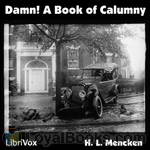 Damn! A Book of Calumny
Damn! A Book of Calumny
Henry Louis “H. L.” Mencken (1880 – 1956) was an American journalist, essayist, magazine editor, satirist, acerbic critic of American life and culture, and a student of American English. Known as the “Sage of Baltimore”, he is regarded as one of the most influential American writers and prose stylists of the first half of the 20th century. Mencken is perhaps best remembered today for The American Language, a multi-volume study of how the English language is spoken in the United States, and for his satirical reporting on the Scopes trial, which he named the “Monkey” trial.” | |
By: Paul Verlaine (1844-1896) | |
|---|---|
 Poems of Paul Verlaine
Poems of Paul Verlaine
| |
By: William Morris (1834 — 1896) | |
|---|---|
 The Wood Beyond the World
The Wood Beyond the World
MANUAL OF SURGERY, OXFORD MEDICAL PUBLICATIONSBY ALEXIS THOMSON, F.R.C.S.Ed.PREFACE TO SIXTH EDITION Much has happened since this Manual was last revised, and many surgical lessons have been learned in the hard school of war. Some may yet have to be unlearned, and others have but little bearing on the problems presented to the civilian surgeon. Save in its broadest principles, the surgery of warfare is a thing apart from the general surgery of civil life, and the exhaustive literature now available on every aspect of it makes it unnecessary that it should receive detailed consideration in a manual for students... | |
 News From Nowhere
News From Nowhere
News from Nowhere (1890) is a classic work combining utopian socialism and soft science fiction written by the artist, designer and socialist pioneer William Morris. In the book, the narrator, William Guest, falls asleep after returning from a meeting of the Socialist League and awakes to find himself in a future society based on common ownership and democratic control of the means of production. In this society there is no private property, no big cities, no authority, no monetary system, no divorce, no courts, no prisons, and no class systems... | |
 The Well at the World's End, Book 1: The Road unto Love
The Well at the World's End, Book 1: The Road unto Love
The Well at World's End is thought to be one of the first examples of an entirely fictional fantasy world, and has greatly influenced later fantasy writers such as C.S. Lewis and J.R.R. Tolkien. The book follows the travels of Ralph, a prince of a tiny country, as he disobeys his fathers wishes and runs away from home to adventure in the world, and seek out the fabled Well at World's End, said to grant eternal youth to those who drink from it. | |
 The House of the Wolfings
The House of the Wolfings
William Morris (1834-1896) was a writer, illustrator and medievalist from the Romantic period and associated with other renowned authors of the time such as Dante Rossetti. His fascination with ancient Germanic and Norse people dominated his writings, the first to be set in an entirely invented fantasy world and which helped to establish the fantasy genre. The House of Wolfings (1890), some argue, is a demonstration of Morris' socialism as the society described, though not an utopia, is clan-based, elects leaders and makes decisions in clan tribal meetings... | |
 The Story of the Volsungs, (Volsunga Saga) With Excerpts from the Poetic Edda
The Story of the Volsungs, (Volsunga Saga) With Excerpts from the Poetic Edda
| |
 The Art and Craft of Printing
The Art and Craft of Printing
| |
 The Tale of Beowulf Sometime King of the Folk of the Weder Geats
The Tale of Beowulf Sometime King of the Folk of the Weder Geats
| |
 The Story of Sigurd the Volsung
The Story of Sigurd the Volsung
| |
 The Hollow Land
The Hollow Land
| |
 Hopes and Fears for Art
Hopes and Fears for Art
| |
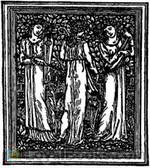 The Earthly Paradise
The Earthly Paradise
| |
 The Water of the Wondrous Isles
The Water of the Wondrous Isles
| |
 The Story of Sigurd the Volsung and the Fall of the Niblungs
The Story of Sigurd the Volsung and the Fall of the Niblungs
| |
 A Dream of John Ball; and, a king's lesson
A Dream of John Ball; and, a king's lesson
| |
 The Story of Grettir the Strong
The Story of Grettir the Strong
| |
 The Roots of the Mountains; Wherein Is Told Somewhat of the Lives of the Men of Burgdale
The Roots of the Mountains; Wherein Is Told Somewhat of the Lives of the Men of Burgdale
| |
 Child Christopher and Goldilind the Fair
Child Christopher and Goldilind the Fair
| |
 The Story of the Glittering Plain; or, the land of Living Men
The Story of the Glittering Plain; or, the land of Living Men
| |
 Old French Romances
Old French Romances
| |
 The World of Romance being Contributions to The Oxford and Cambridge Magazine, 1856
The World of Romance being Contributions to The Oxford and Cambridge Magazine, 1856
| |
 The Sundering Flood
The Sundering Flood
| |
 The Pilgrims of Hope
The Pilgrims of Hope
| |
 A Selection from the Poems of William Morris
A Selection from the Poems of William Morris
| |
 The Tables Turned or, Nupkins Awakened. A Socialist Interlude
The Tables Turned or, Nupkins Awakened. A Socialist Interlude
| |
By: Grace Livingston Hill (1865-1947) | |
|---|---|
 Cloudy Jewel
Cloudy Jewel
Julia Cloud, the oldest--and most responsible--child of her family, helped raise her four siblings due to their mother's long-time illness and father's death. After faithfully nursing two ill brothers (who died), she then cared for her invalid mother for many years. When Julia's mother passes on, her only surviving sibling Ellen fully expects--and nearly demands--that her spinster sister come live with her family. But to earn her keep, Julia must be their live-in housekeeper and babysitter for Ellen's four children. But Julia's college-age niece and nephew arrive unexpectedly from California and offer Aunt Cloudy Jewel a surprise opportunity she never expected in her wildest dreams. | |
 Marcia Schuyler
Marcia Schuyler
A compelling love triangle. Marcia is young & sweet. Her older sister Kate is vain & selfish. Marcia deeply admires the man that Kate is to marry: handsome & respected David Spafford. But on the eve of the wedding, Kate elopes with another man. Marcia is there when the note is found...the note that effectively breaks David's heart. Out of pity for his situation, Marcia offers to take Kate's place, in order to save David from humiliation. She grows in love for him, all the while aware that he's still grieving for his lost Kate. What will happen when Kate returns, fully intending to get David back? Will Marcia have the strength to fight for the man she now loves? | |
 The Girl from Montana
The Girl from Montana
Young Elizabeth, left orphaned by an evildoer who murders her last brother, flees Montana on horseback to find her remaining relatives in the East. Her social and spiritual journey leads her through harrowing encounters, struggles between good and evil, romance and, ultimately, love and fortune. Classic Grace Livingston Hill. (Introduction by Gail Mattern) | |
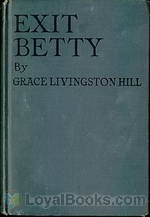 Exit Betty
Exit Betty
| |
 The War Romance of the Salvation Army
The War Romance of the Salvation Army
| |
By: John Wesley Powell (1834-1902) | |
|---|---|
 Canyons of the Colorado, or The exploration of the Colorado River and its Canyons
Canyons of the Colorado, or The exploration of the Colorado River and its Canyons
John Wesley Powell was a pioneer American explorer, ethnologist, and geologist in the 19th Century. In 1869 he set out to explore the Colorado and the Grand Canyon. He gathered nine men, four boats and food for ten months and set out from Green River, Wyoming, on May 24. Passing through dangerous rapids, the group passed down the Green River to its confluence with the Colorado River (then also known as the Grand River upriver from the junction), near present-day Moab, Utah. The expedition’s route... | |
 On Limitations To The Use Of Some Anthropologic Data
On Limitations To The Use Of Some Anthropologic Data
| |
 Wyandot Government: A Short Study of Tribal Society Bureau of American Ethnology
Wyandot Government: A Short Study of Tribal Society Bureau of American Ethnology
| |
By: Ernest William Hornung (1866-1921) | |
|---|---|
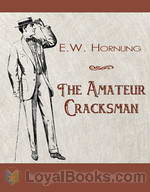 The Amateur Cracksman
The Amateur Cracksman
“I’d tasted blood, and it was all over with me. Why should I work when I could steal? Why settle down to some humdrum uncongenial billet, when excitement, romance, danger and a decent living were all going begging together” – A. J. Raffles, The Ides of March. | |
By: William Clark Russell (1844-1911) | |
|---|---|
 The Frozen Pirate
The Frozen Pirate
Sailing adventure with storms, icebergs, shipwrecks, treasure, and the reawakening of a pirate frozen in suspended animation for nearly fifty years | |
By: Irvin S. Cobb (1876-1944) | |
|---|---|
 Cobb's Anatomy
Cobb's Anatomy
Irvin Shrewsbury Cobb was born on June 23, 1876. At seventeen years of age, he began writing for the Paducah Daily News, his hometown paper. At nineteen he became the managing editor; up to that point, our nation’s youngest. He worked as a columnist, a humorist and an author. But ‘horror,’ and ’short stories,’ are not why he is remembered. He is remembered because he was, and still is, funny. And although he is now dead–he died March 11, 1944–this work “Cobb’s Anatomy,” among others, has left an indelible mark upon mankind: a smile. | |
 One Third Off
One Third Off
Irvin Shrewsbury Cobb (June 23, 1876–March 11, 1944) was an American author, humorist, and columnist who lived in New York and wrote over 60 books and 300 short stories. Cobb has been described as “having a round shape, bushy eyebrows, full lips, and a triple chin. He always had a cigar in his mouth.” This book is a hilarious account of Cobb’s attempts at weight-loss. | |
 J. Poindexter, Colored
J. Poindexter, Colored
This comic novel relates the first-person adventures in New York City of Jefferson Poindexter, personal assistant to Cobb's famous Judge Priest, while the judge is vacationing abroad. (Introduction by Grant Hurlock) | |
By: Alfred Noyes (1880-1958) | |
|---|---|
 Watchers of the Sky
Watchers of the Sky
| |